Calcium plays a crucial role in maintaining strong bones and teeth throughout life. For seniors, whose bone health becomes increasingly fragile with age, adequate calcium intake is vital. It supports bone structure, strength, and density, helping to prevent osteoporosis and fractures. Additionally, calcium is essential for proper muscle function, nerve transmission, and hormone secretion in older adults.
Daily Recommended Calcium Intake for Elderly Adults
The daily recommended intake of calcium for seniors varies but generally ranges from 1,000 to 1,200 milligrams per day. Factors such as age, gender, and health conditions can influence these needs. Calcium-rich foods and supplements may be necessary to meet these requirements, especially if dietary intake alone is insufficient.
1. Spinach and Cheese Stuffed Chicken Breast
For a calcium-packed meal, prepare Spinach and Cheese Stuffed Chicken Breast. Begin by mixing chopped spinach with ricotta, mozzarella, and Parmesan cheeses, along with minced garlic, salt, and pepper. Cut a pocket into boneless, skinless chicken breasts, fill them with the spinach and cheese mixture, and secure with toothpicks. Sear the chicken in a skillet with olive oil until browned, then transfer to a baking dish and bake at 375°F for 20-25 minutes, or until the chicken is thoroughly cooked. This dish is rich in calcium from the spinach and cheeses, making it a nutritious choice for seniors.

2. Salmon and Broccoli Frittata
A Salmon and Broccoli Frittata is a flavorful way to incorporate calcium and omega-3 fatty acids into a meal. To prepare, whisk together eggs, cooked salmon, and steamed broccoli, then stir in crumbled feta cheese. Pour the mixture into a greased ovenproof skillet and cook over medium heat until the edges are set. Transfer the skillet to a preheated oven at 350°F and bake for about 15-20 minutes, or until the frittata is fully set and lightly browned. This dish is perfect for breakfast, brunch, or dinner, offering a healthy dose of calcium and protein.
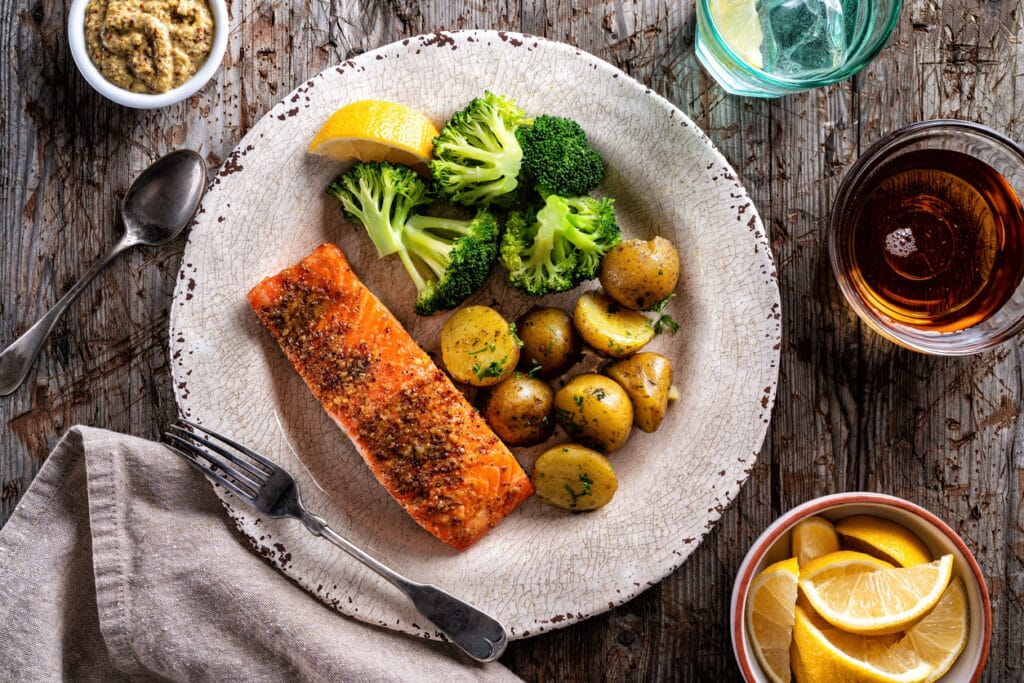
3. Creamy Kale and Tofu Stir-Fry
For a vegan option, try a Creamy Kale and Tofu Stir-Fry. Start by sautéing garlic and onions in a skillet with olive oil. Add cubed tofu and cook until golden brown, then stir in chopped kale. For the creamy sauce, mix tahini, soy sauce, and a little water, then pour over the tofu and kale. Cook until the kale is wilted and the sauce is well combined. Serve over brown rice for a complete meal. This stir-fry is rich in calcium from both the kale and tofu, making it an excellent choice for maintaining bone health.
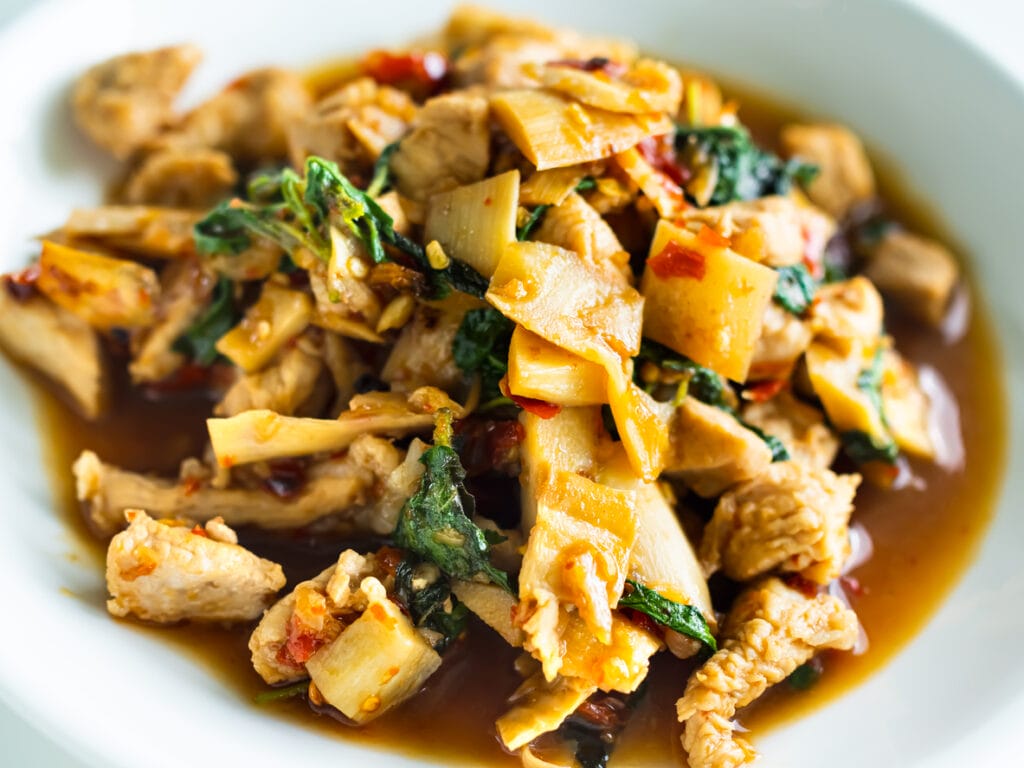
4. Almond and Chia Seed Pudding
A simple and nutritious breakfast or dessert option is Almond and Chia Seed Pudding. Combine almond milk, chia seeds, and a touch of honey or maple syrup in a bowl. Stir well and let it sit in the refrigerator overnight, allowing the chia seeds to absorb the liquid and form a pudding-like consistency. In the morning, top with fresh berries or nuts for added flavor and texture. This pudding is not only rich in calcium from the almond milk but also provides fiber and healthy fats from the chia seeds.
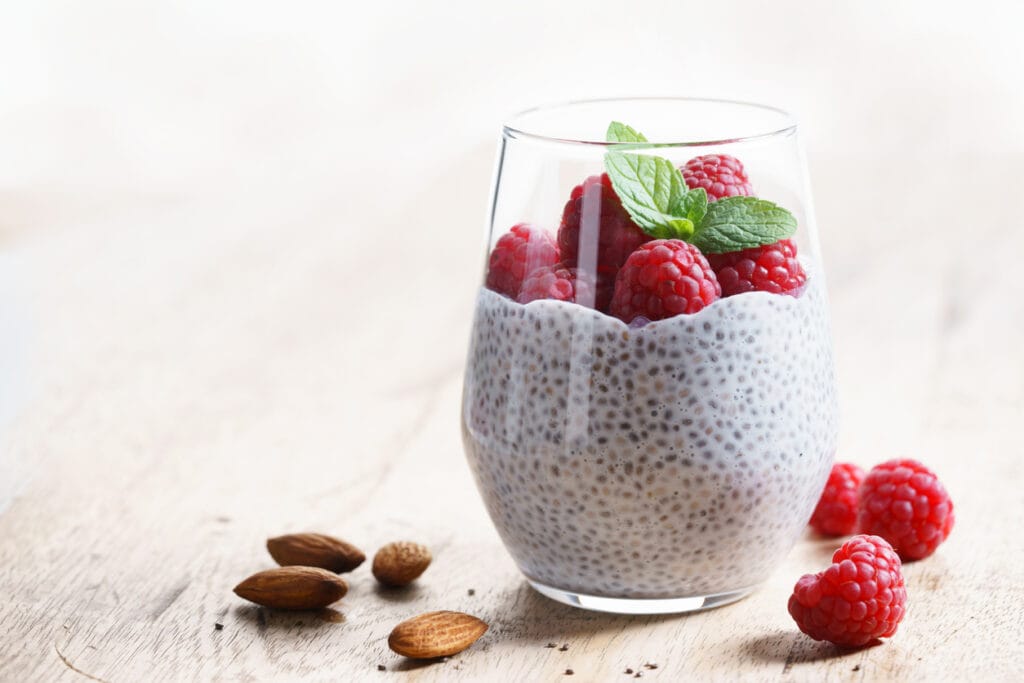
5. Baked Parmesan-Crusted Cod
Baked Parmesan-Crusted Cod is a delicious and calcium-rich dinner option. Start by coating fresh cod fillets with a mixture of grated Parmesan cheese, whole wheat breadcrumbs, and herbs. Place the fillets on a baking sheet lined with parchment paper and bake in a preheated oven at 400°F for 12-15 minutes, or until the fish is flaky and the crust is golden brown. The Parmesan cheese provides a good amount of calcium, while the cod offers lean protein and heart-healthy omega-3 fatty acids.

6. Greek Yogurt Parfait with Berries and Granola
For a quick and easy calcium boost, make a Greek Yogurt Parfait with Berries and Granola. Layer Greek yogurt in a glass or bowl with fresh berries such as blueberries, strawberries, or raspberries. Top with a sprinkle of granola for crunch. Greek yogurt is high in calcium and protein, while the berries add antioxidants and vitamins. This parfait is a versatile, calcium-rich snack or breakfast option that’s both satisfying and nutritious.
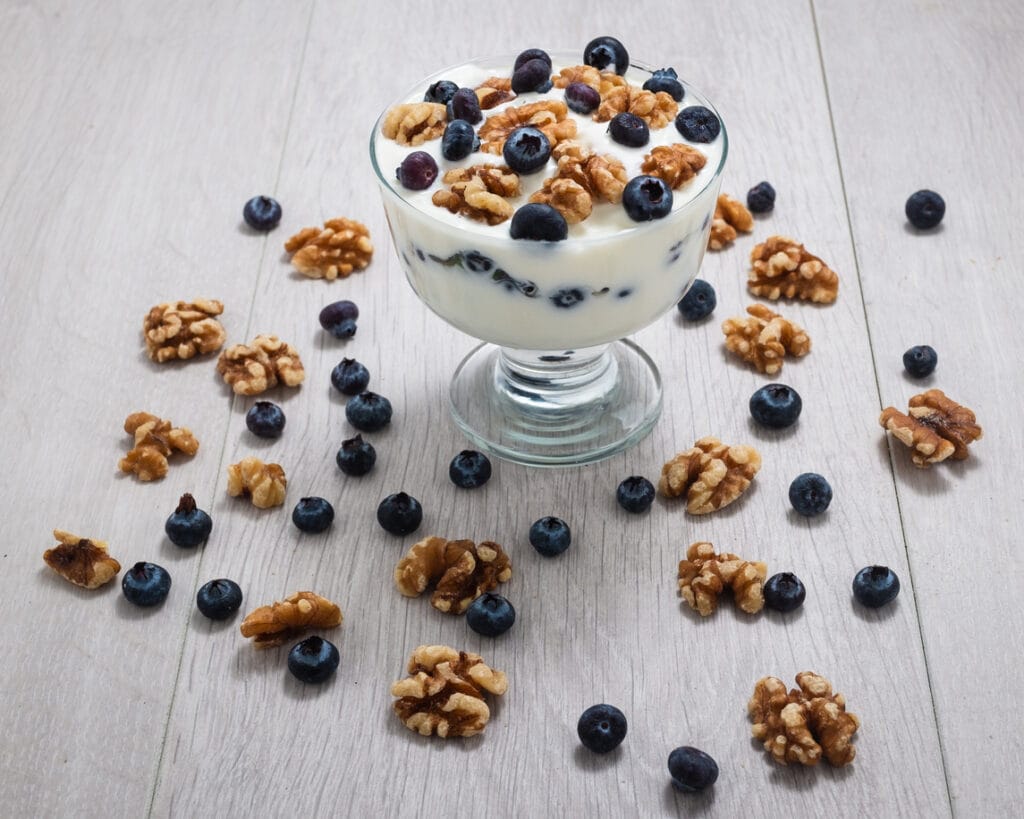
7. Sesame Kale and Edamame Salad
A Sesame Kale and Edamame Salad is a refreshing and nutritious dish that’s perfect for lunch or a light dinner. Combine chopped kale with shelled edamame in a bowl. Prepare a sesame dressing by whisking together tahini, lemon juice, soy sauce, and a bit of water. Drizzle the dressing over the kale and edamame, then toss to coat. Sprinkle sesame seeds on top for extra calcium and flavor. This salad is packed with calcium from the kale, edamame, and sesame seeds, making it a healthy choice for supporting bone health.
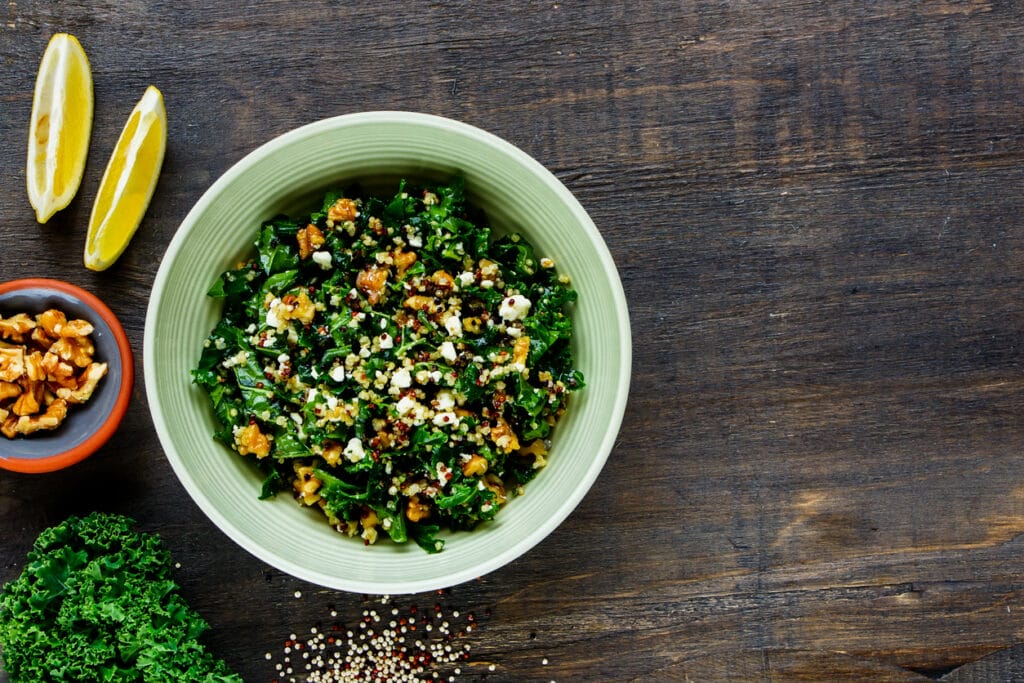
8. Cottage Cheese and Fruit Bowl
For a simple yet nutritious snack or breakfast, prepare a Cottage Cheese and Fruit Bowl. Start with a base of cottage cheese, which is high in calcium and protein. Top with a selection of fresh fruits such as pineapple, peaches, or berries. Add a sprinkle of chia seeds or nuts for extra texture and nutrition. This combination provides a balance of calcium, vitamins, and healthy fats, making it a great choice for maintaining bone health and overall wellness.
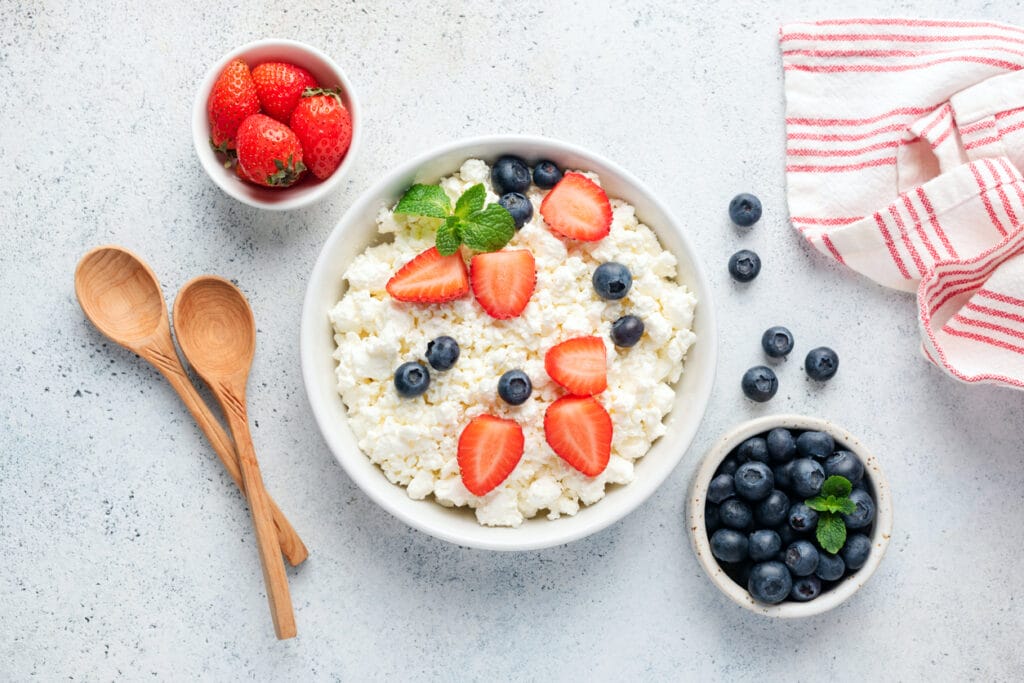
Addressing Dietary Restrictions and Preferences
Adapt recipes to accommodate seniors' dietary needs and preferences. Use substitutes or modifications for dairy, such as fortified plant-based milks or lactose-free options. Experiment with different cooking methods to enhance flavors and textures while meeting nutritional requirements.
Encouraging Seniors to Stay Active for Bone Health
Physical activity plays a vital role in maintaining bone density and overall health. Encourage seniors to engage in weight-bearing exercises like walking, dancing, or light strength training, as these activities help stimulate bone growth and reduce the risk of osteoporosis. Work with healthcare providers to develop safe and suitable exercise routines based on individual capabilities.
Monitoring and Consulting with Healthcare Providers
Regular check-ups with healthcare providers are essential for monitoring bone health and overall wellness. Schedule routine visits to assess calcium levels, bone density, and any potential dietary adjustments. Seek professional guidance on managing medications, supplements, and lifestyle modifications to support optimal bone health throughout aging.





